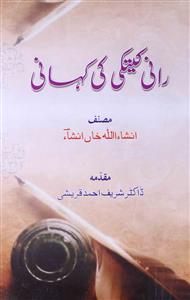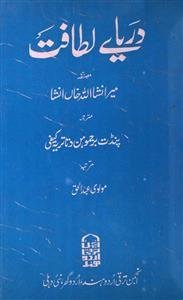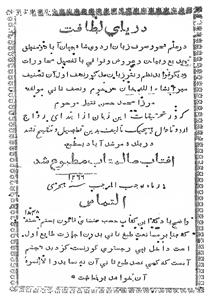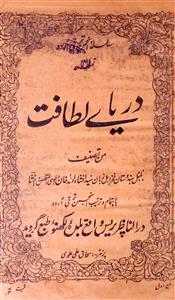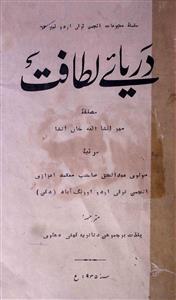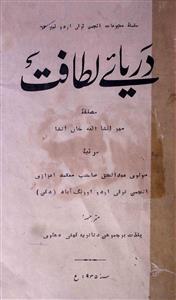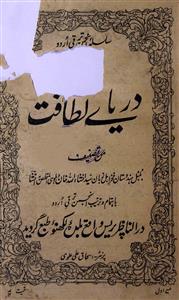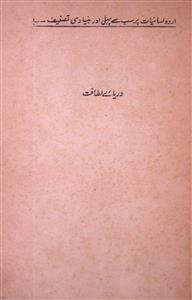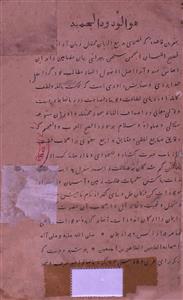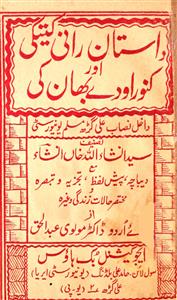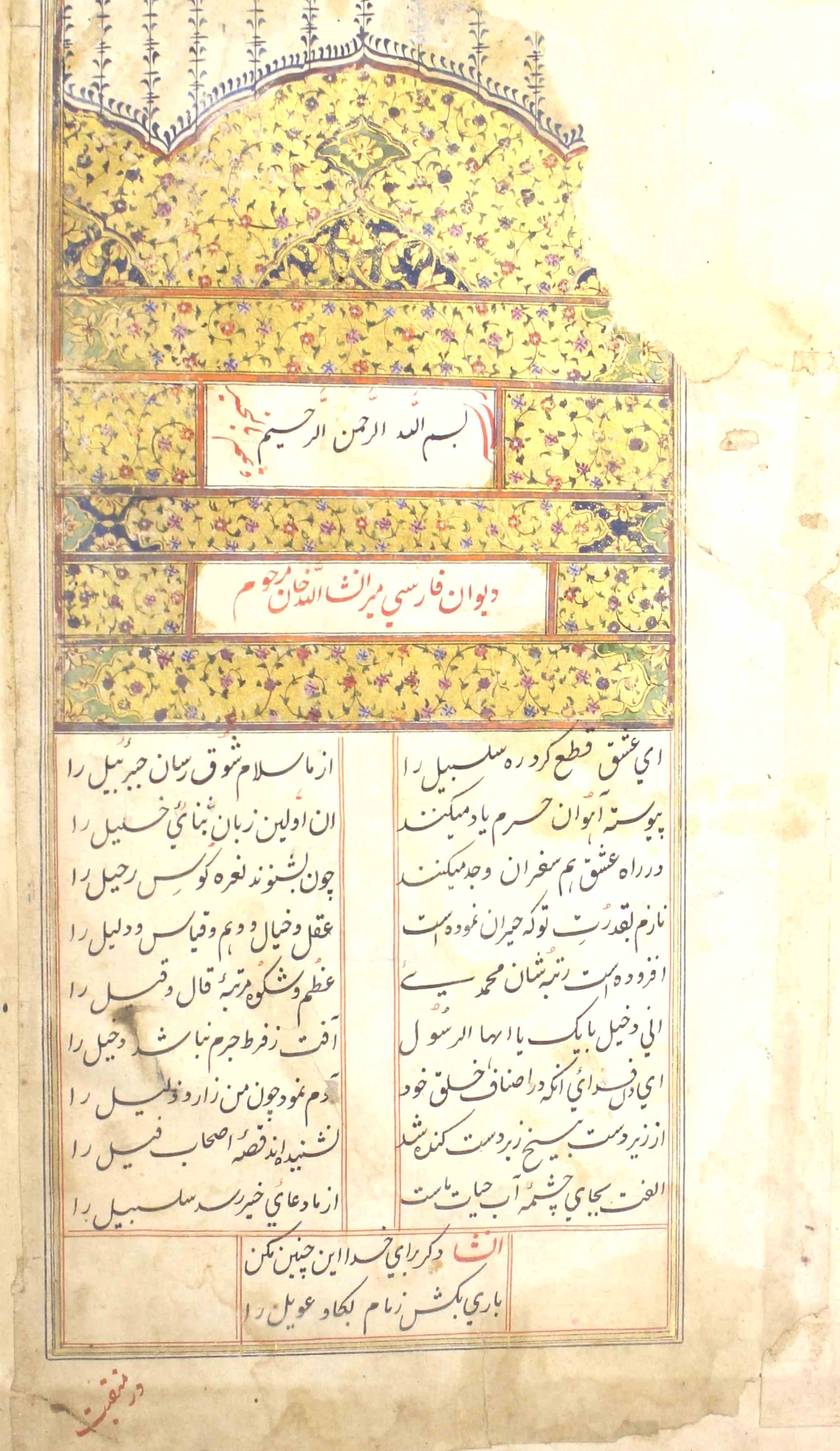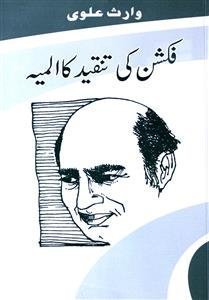 For any query/comment related to this ebook, please contact us at haidar.ali@rekhta.org
For any query/comment related to this ebook, please contact us at haidar.ali@rekhta.org
About The Book
رانی کیتکی کی کہانی خالص ہندوستانی یا ہندوی زبان کی کہانی ہے۔ اس کہانی میں انشا اللہ خاں نے اس بات کا خاص طور پر التزام کیا ہے کہ اس کہانی کو ہندوی میں لکھیں اور دیگر زبان کے الفاظ سے اس کو دور رکھیں۔ عربی ، فارسی، انگریزی،ترکی یا کوئی اور زبان کا ایک بھی لفظ نہ استعمال کیا جائے۔ اسی لئے انہوں نے قصہ بھی خالص ہندوستانی لکھا ہے اور یہ ان کے خود کے ذہن کی اپج ہے۔ یہ اردو اور ہندی کی پہلی کہانی ہے۔ ہندی اور اردو زبان کے ناقدین میں اس بات کا اختلاف ہے کہ یہ کہانی ہندی زبان میں لکھی گئی یا اردو زبان میں۔ ٹھیک اسی طرح جیسے امیر خسرو کو ہندی اور اردو داں دونو ہی اپنی زبان کا موجد مانتے ہیں۔ مگر دلائل کو دیکھتے ہوئے اس بات کا یقین ہوتا ہے کہ اس کی اصل اردو زبان ہے اور انشا اللہ خان اردو زبان کے شاعر و ادیب تھے ناکہ ہندی زبان کے۔ جس زمانے میں فورٹ ولیم کالج اردو قصہ گوئی کی ترویج و ترقی کے لئے کوشاں تھا اور لوگوں کو پیسے دیکر قصہ گوئی کرا رہا تھا انہی ایام میں انشا اللہ خاں انشا ہندوستانی قصہ گوئی کی بنیاد ڈال رہے تھے۔ یہ صنفی اعتبار سے داستان کا درجہ رکھتی ہے مگر ضخامت کے اعتبار سے طویل افسانے یا ناولٹ سے زیادہ طویل نہیں ہے۔ اس کہانی میں رانی کیتکی اور شاہزادہ اودھے بھان مرکزی کردار ہیں۔ دونوں کی محبت کو بطور خاص دکھانے کی کوشش کی گئی ہے۔ انشا اللہ خان انشا اپنی زبان و بیان اور بزلہ سنجی و حاضر جوابی کی وجہ سے نواب سعادت علی خان کے مقرب تھے۔ ان کی شاعری اور غزل میں بھی ان کو بڑا شاعر تصور کیا جاتا ہے اور ریختی گوئی ان کا خاص فن ہے۔ زیر نظر نسخہ کو شریف قریشی نے اپنے مقدمہ کے ساتھ مرتب کیا ہے۔
About The Author
Insha Allah Khan (1752-1817), better known by his pen name of Insha, was born in Murshidabad where his father, Mir Masha Allah khan, a royal physician and also a poet, had migrated from Delhi following the decline of the Mughal Empire and received the patronage of Nawab Sirajuddaulah. Insha received his early education and advice on his poetry mostly from his father. Later, his father brought him back to the court of Shah Alam II in Delhi who valued his poetry, his verbal dexterity, and his ready wit. With the fall of Delhi durbar, Insha migrated to Lucknow where he joined the court of Nawab Mirza Sulaiman Shikoh, a poet and a patron of poets, and became his favourite to the extent that the nawab replaced his mentor Ghulam Hamdani Mus’hafi and appointed Insha in his place. This led to a legendry rivalry between these two major poets of the age which subsequently became a part of the Urdu’s literary history. As Insha was a sociable person and wanted to explore better opportunities in life, he also developed a good relationship with Nawab Sa’adat Yaar Khan. However, his acerbic tongue and derisive remarks, which he made without much consideration, landed him in disfavour with his patrons and contemporary poets. With the seizure of stipend from his patrons and left with no sources of sustenance in the later period of his life, Insha lived a life of misery in Lucknow where he died and lies buried.
Insha was a remarkable polyglot and had a unique expertise in various languages and dialects like Arabic, Persian, Turkish, Punjabi, Pushto, Marathi, Kashmiri, Poorabi, Rekhti, Marwari, and Hindi. He could also compose verses in them. He is valued as the first author of a complete grammar of Urdu language in Persian called Daryaa-i-Lataafat. He also wrote a fascinating fictional narrative called Raani Ketaki ki Kahaani that did not have a word of Arabic and Persian in it. It also happens to be the earliest work of Urdu prose. Endowed with unique resourcefulness with the written word, he could appropriate a great variety of ideas, events, and anecdotes into his poetry. Insha has left behind his works in various forms and genres of ghazal, qasida, and mathnawi in Persian and Urdu, apart from miscellaneous poetical compositions in the forms of hamd, naat, manqabat, qita, rubai, hajw, and riddles.
 For any query/comment related to this ebook, please contact us at haidar.ali@rekhta.org
For any query/comment related to this ebook, please contact us at haidar.ali@rekhta.org
